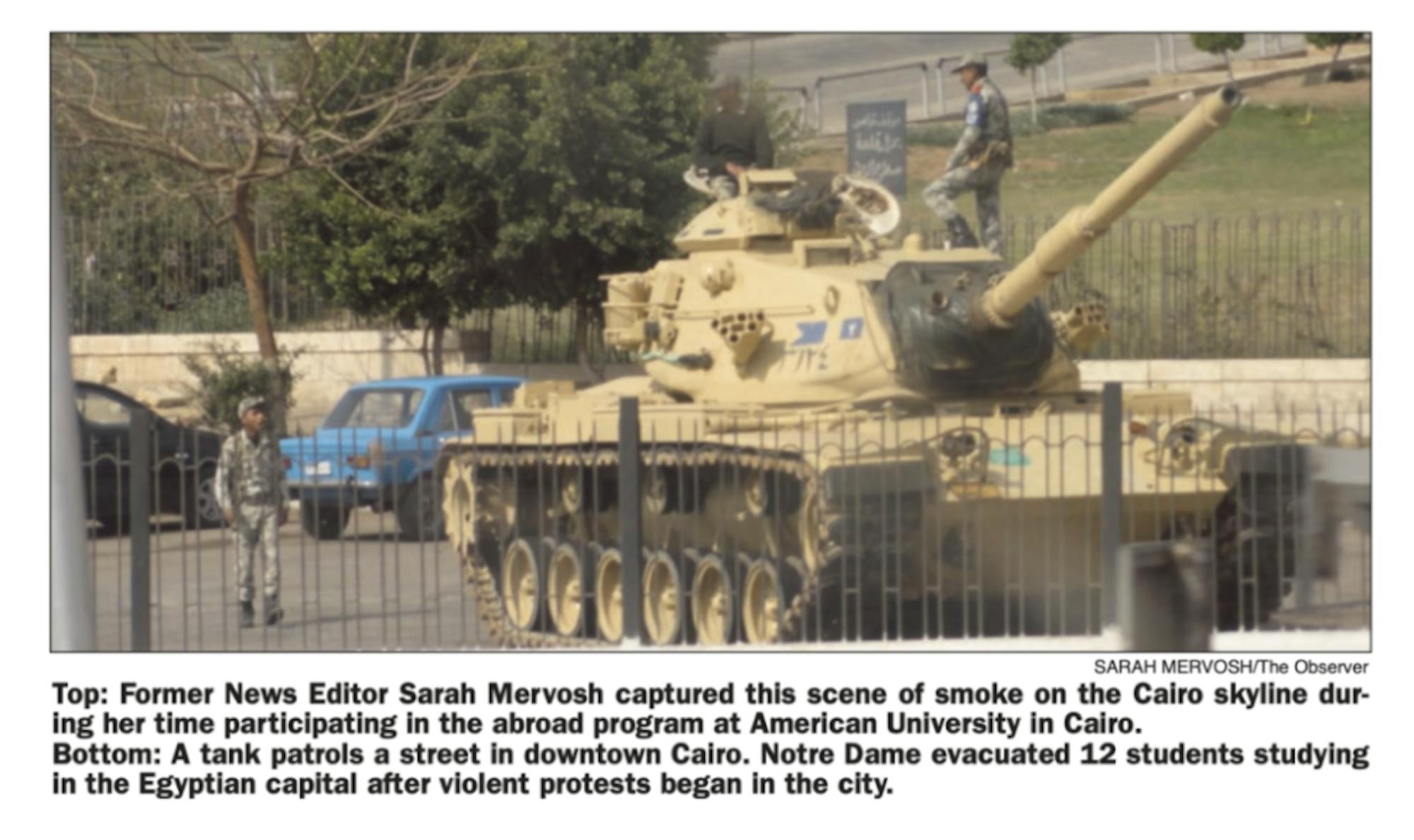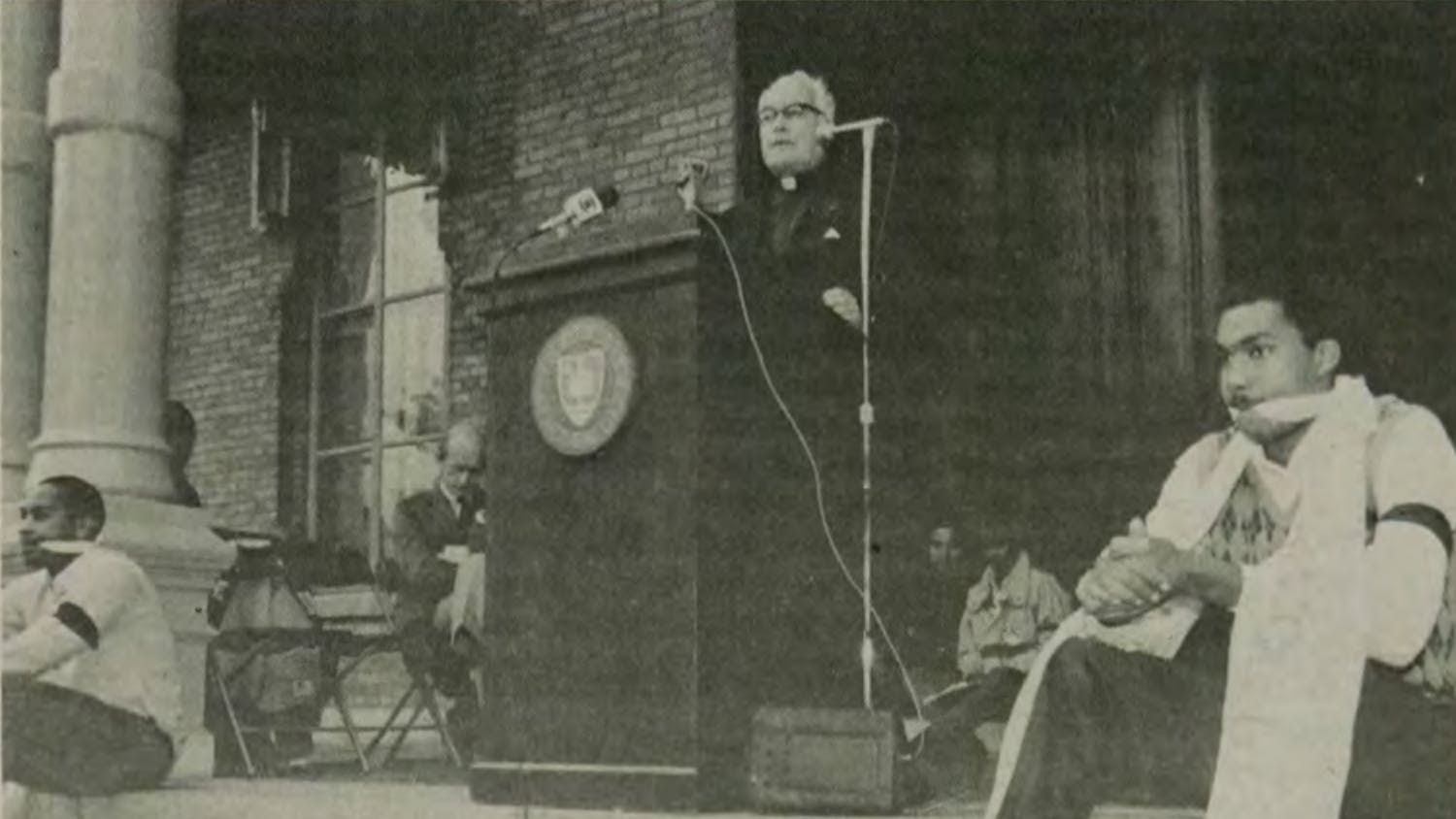
ND study abroad students evacuated from Cairo to Istanbul
Feb. 1, 2011 | Observer Staff Report | Researched by Evan McKenna
 Observer archives, Feb. 1, 2011
Observer archives, Feb. 1, 2011
Cairo study abroad in fall 2011 called off following spring cancellation
March 23, 2011 | Sam Stryker | Researched by Adriana Perez
On Feb. 24, 2011, just over a month after the University suspended its fall study abroad program in Cairo, the Office of International Studies (OIS) announced its spring Cairo program would be cancelled as well. Following the announcement, the 26 affected students were invited to enroll in alternative study abroad programs.
“We want to place students [in alternative programs], if we can at all place them,” Judy Hutchinson, the assistant director of OIS, said.The Observer reached out to some of the 26 students for comment. Sophomore Joe Massad held out on the possibility of OIS reinstating the Cairo program.“There are no other specifically Arabic options, so I really hope the unrest settles down, though it is quite unlikely,” Massad said.Despite the region’s civil unrest, OIS had explored other options in the Middle East. “We have done a lot of searching for other alternatives but [America University in Cairo] … encompasses everything we value,” OIS associate director Julliet Mayinja said.Garrett Ward, a potential Egypt applicant who settled on Athens, was pleased with Notre Dame’s response to the difficult situation. Ward said OIS was “quick to get the pool of accepted students all the info they had and keep them up to date.”OIS was uncertain how long the abroad program in Cairo would be suspended.“If I were a political analyst, I could make a guess, but unfortunately I don’t know. It is going to depend on the election that is supposedly in the fall. It is going to depend on the Middle East,” Hutchinson said. Unfortunately, the region continued to experience unrest after fall 2011. The spring 2012 study abroad in Egypt would end up cancelled, as well.Notre Dame student reflects on Cairo study abroad evacuation
Feb. 4, 2011 | Sarah Mervosh | Researched by Mary Steurer
History is always happening around us — a fact perhaps clearer to us now more than ever. In early 2011, Notre Dame students studying abroad in Egypt were forced to flee as the Arab Spring uprisings unfolded throughout the Middle East. In an Observer column, News Writer Sarah Mervosh gave a first-person account of the students’ evacuation.“Right now, it is probably nearing lunchtime and you are reading The Observer while sipping on a coffee from Waddick’s,” Mervosh wrote. Her day, however, had looked very different. “I was woken up … to learn that the U.S. State Department was evacuating me and the 11 other Notre Dame students from Egypt,” Mervosh wrote.













